Join the National Indian Council on Aging (NICOA) on March 27–30 at On Aging 2023 in Atlanta, Georgia to experience a range of special events organized to help participants unite, empower and champion together. The American Society on Aging’s (ASA) conference is the leading multidisciplinary conference on aging in the United States. The conference offers attendees the unique opportunity to build a strategy that will drive their work and mission forward.
Participants will learn from one another and leaders in aging through three days of programming aligned to ASA’s five priority areas, and across several thematic tracks: Justice & Equity, Innovation & Social Impact, Health & Well-being, Economic Security, and Ageism & Culture.
Conference features include:
- Member-led workshops that provide attendees with CEUs
- Keynotes and General Sessions featuring leaders in aging
- Networking sessions that connect attendees with future partners, advocates and allies
- Policy and advocacy programming
NICOA Presentations
Monday, March 27 8-9 a.m.
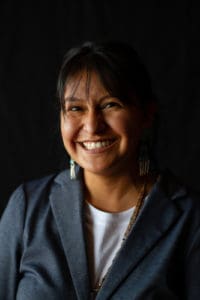 “An Indigenous Lens on Aging with Disabilities”
“An Indigenous Lens on Aging with Disabilities”
by Desiree Lapahie (Navajo Nation), NICOA Data Analyst
This workshop offers an Indigenous perspective of disability within the aging sector. It provides participants with a knowledge base of unique considerations, and application tools to work toward positively impacting the lives of people with disabilities. The foundation of this presentation was formed in a powerful sharing of experiences, knowledge and hopes among consumers and advocates who live with disabilities.
Location: Hanover C (Exhibit Level)
Tuesday, March 28 9-10:30 a.m.
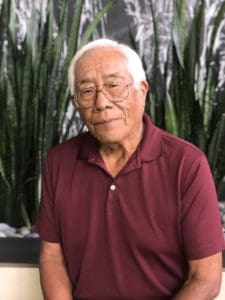 “Legacy Lessons from Sages of Aging”
“Legacy Lessons from Sages of Aging”
featuring Larry Curley (Navajo Nation), NICOA Executive Director
This curated session explores significant, notable aging topics ranging from longevity versus aging, intergenerational engagement, personal and collective legacies, ageism, to lifelong resilience and much more. Building on the lessons and lives of a dozen pioneering experts in the fields of longevity, health, advocacy, and policy, Ken Dychtwald’s provocative interviews capture, in their own words, the perspectives of these impassioned sages: Larry Curley, Marc Freedman, Linda Fried, Terry Fulmer, Kathy Greenlee, Jennie Chin Hansen, Paul Nathanson, John Rowe, E. Percil Stanford, Jeanette Takamura, Fernando Torres-Gil, and Imani Woody.
This unique program presents a reflection on the origin stories of the field of aging alongside their individual professional paths and insights. A resounding guide to today’s changemakers in aging services, this program will inspire us to envision our legacies for the present and future with meaning and purpose.
Location: Centennial I-II (Ballroom Level)
Tuesday, March 28 2-3 p.m.
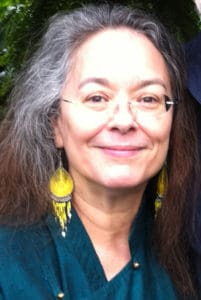 “Social Isolation and Indian Country: Getting the Word Out”
“Social Isolation and Indian Country: Getting the Word Out”
featuring Rebecca Owl Morgan (Eastern Band of Cherokee Indians), NICOA Project Coordinator
During the height of the COVID-19 pandemic, many American Indian and Alaska Native elders stated that social isolation and loneliness were issues experienced during mandatory curfews or stay-at-home orders on many reservations, which are often remote.
To inform elders, leaders, caregivers, and youth about how an elder’s physical and emotional health could be harmed by social isolation and loneliness, NICOA created the #ConnectedIndigenousElders campaign. This education and outreach campaign used videos (which aired in Indian Health Service hospitals, tribal clinics and urban Indian health centers), radio announcements, tv interviews, and social media to reach our targeted populations.
Location: TBA
Wednesday, March 29 8:15-9:45 a.m.
“An Indigenous View of the Reauthorization of the Older Americans Act”
by Larry Curley (Navajo Nation), NICOA Executive Director
The Older Americans Act (OAA) is up for reauthorization in 2025, so now is the time to resolve some of the contradictions, barriers and gaps in the legislation, especially concerning Indigenous elders. In this workshop, speakers will present the unique needs of Indigenous elders, how the current OAA legislation has created schisms between the services provided to Native elders under Title VI and the general older population under Title III, how never funding Title VIIb has restricted elder abuse services in Native communities, and how defunding Title IV has derailed training of the next generation of gerontologists. The speakers and audience will engage in outlining ways to improve the OAA and steps that need to be taken to prepare for reauthorization.
Location: Greenbriar (Atlanta Conference Level)
Wednesday, March 29 2:30-3:30 p.m.
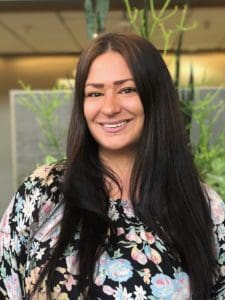 Poster Session: “NICOA SCESEP Best Practices and Partnerships”
Poster Session: “NICOA SCESEP Best Practices and Partnerships”
by Leslie Maly, NICOA SCSEP Director, and Jose Troncoso, NICOA Compliance/Records Manager
This session will dive into best practices of serving the most in-need elder population, focusing efforts to serve the American Indian population. We will explain the importance of partnerships with nonprofit organizations and/or government agencies to successfully place elders into unsubsidized employment.
Location: Centennial IV – 21B
Wednesday, March 29 2:30-3:30 p.m.
Poster Session: “Indian Country Revealed: Working with Tribal Communities”
by Cheryl Archibald, Executive Assistant to the Executive Director
Demonstrate the learning curve of working with tribes and other indigenous people by starting with a basic history of Indian Country and its people. The different locations of Indian Tribes, the number of Indian Tribes, then and now. Federally recognized vs State recognized what does this mean. Provide information about working with Indian Tribes. Show how this demographic is different from others and why it is important to acknowledge that when working with them. Finally, we will provide some information about how to be more inclusive of Indians and Indian Country.
Location: Centennial – 32A
Thursday, March 30 8:30-9:30 a.m.
“Health Policy Priorities for Diverse Elders in the 118th Congress”
featuring Desiree Lapahie (Navajo Nation), NICOA Data Analyst
This expert panel discussion aims to identify key policy priorities and opportunities in the 118th Congress for reducing systemic health disparities and improving health across marginalized elder communities. As we enter the fourth year of the COVID-19 pandemic, this panel will examine new and existing challenges facing diverse elders and offer ways in which Congress and the Biden Administration can demonstrate leadership and innovation. With recent shifts in the political landscape from the midterm elections, this will be a timely conversation rooted in equity that will explore key legislation impacting diverse elders.
Location: Hanover E (Exhibit Level)
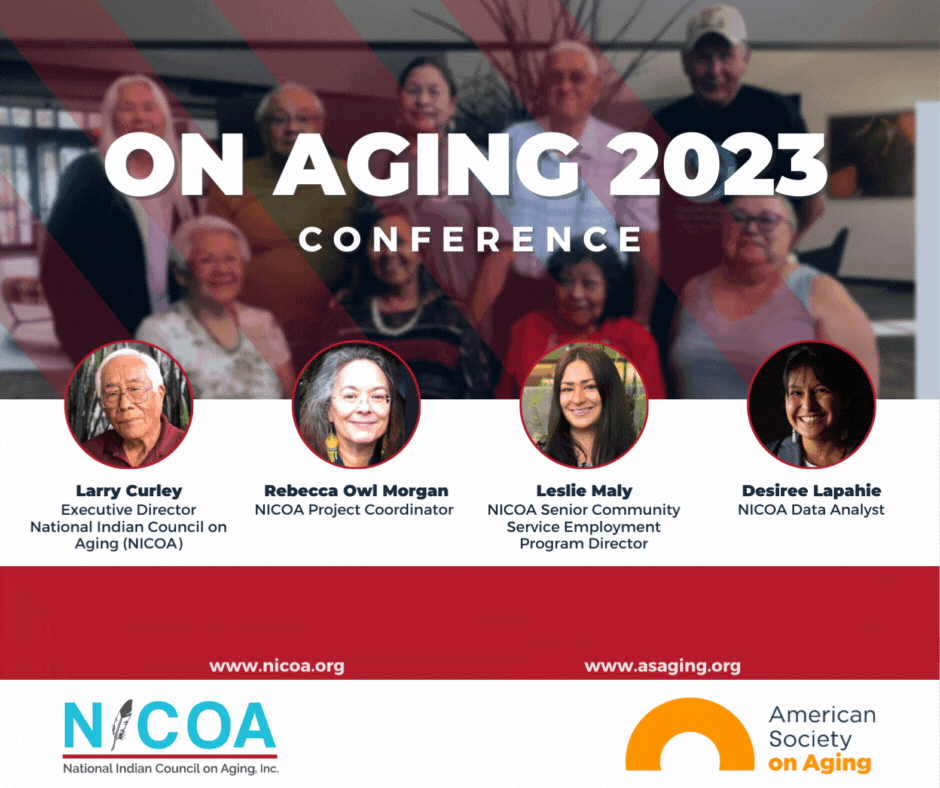
congratulations! Sounds like a fulfilling conference!